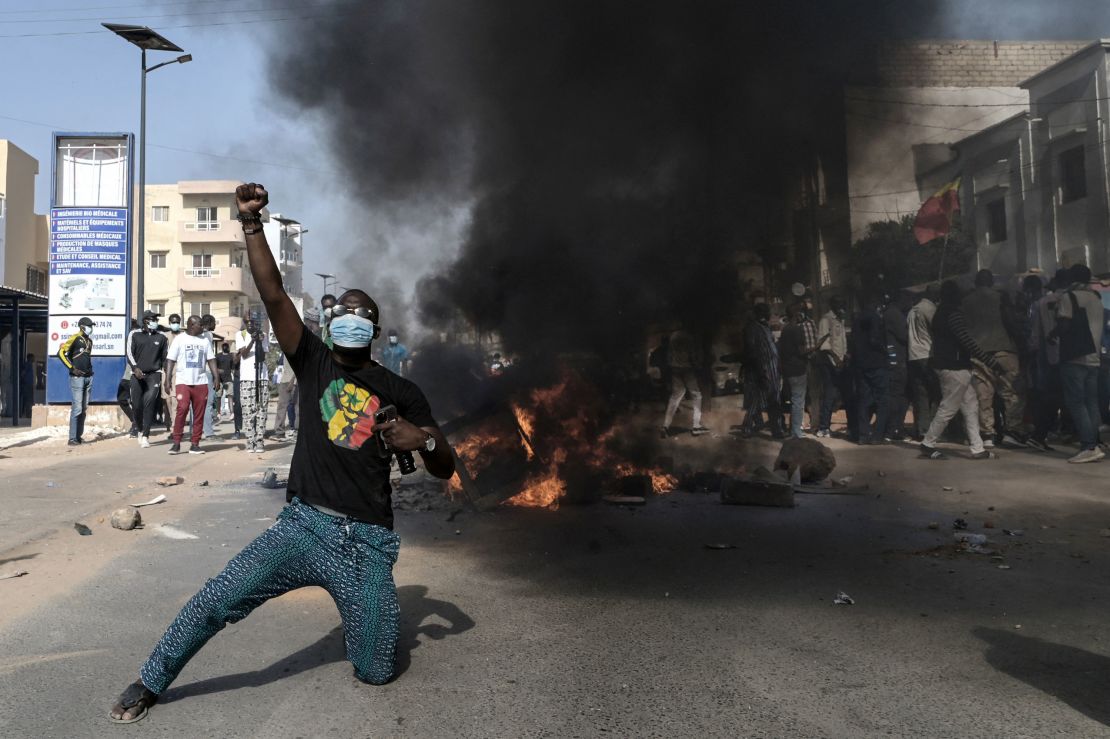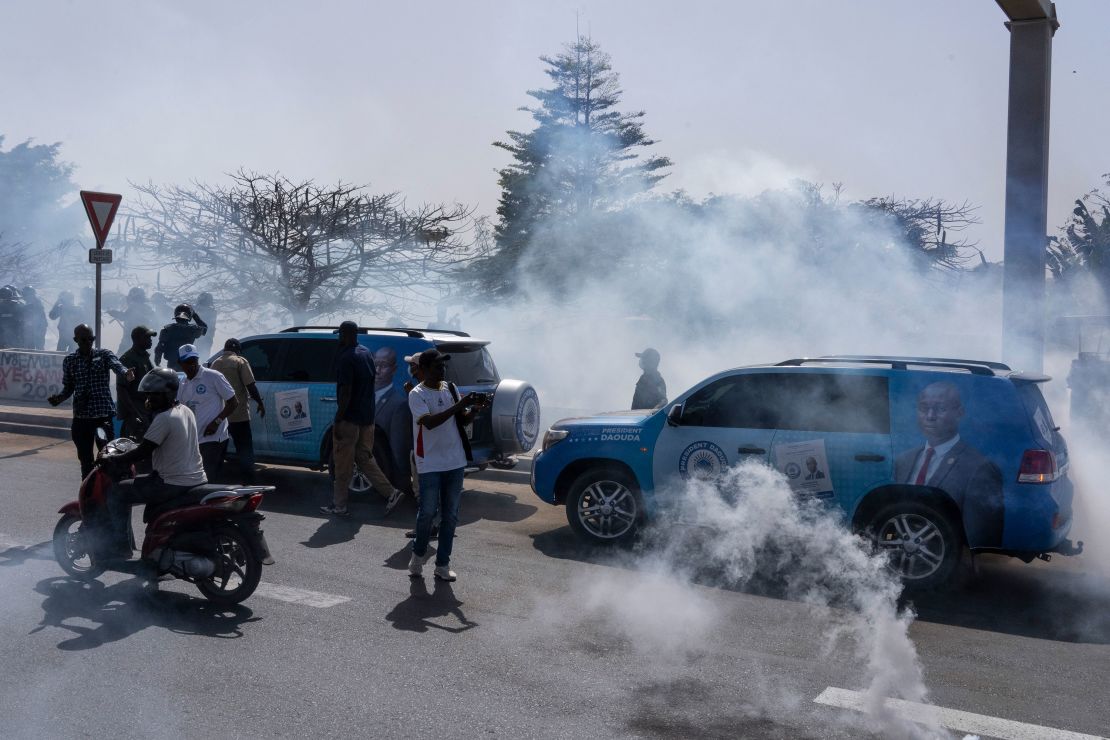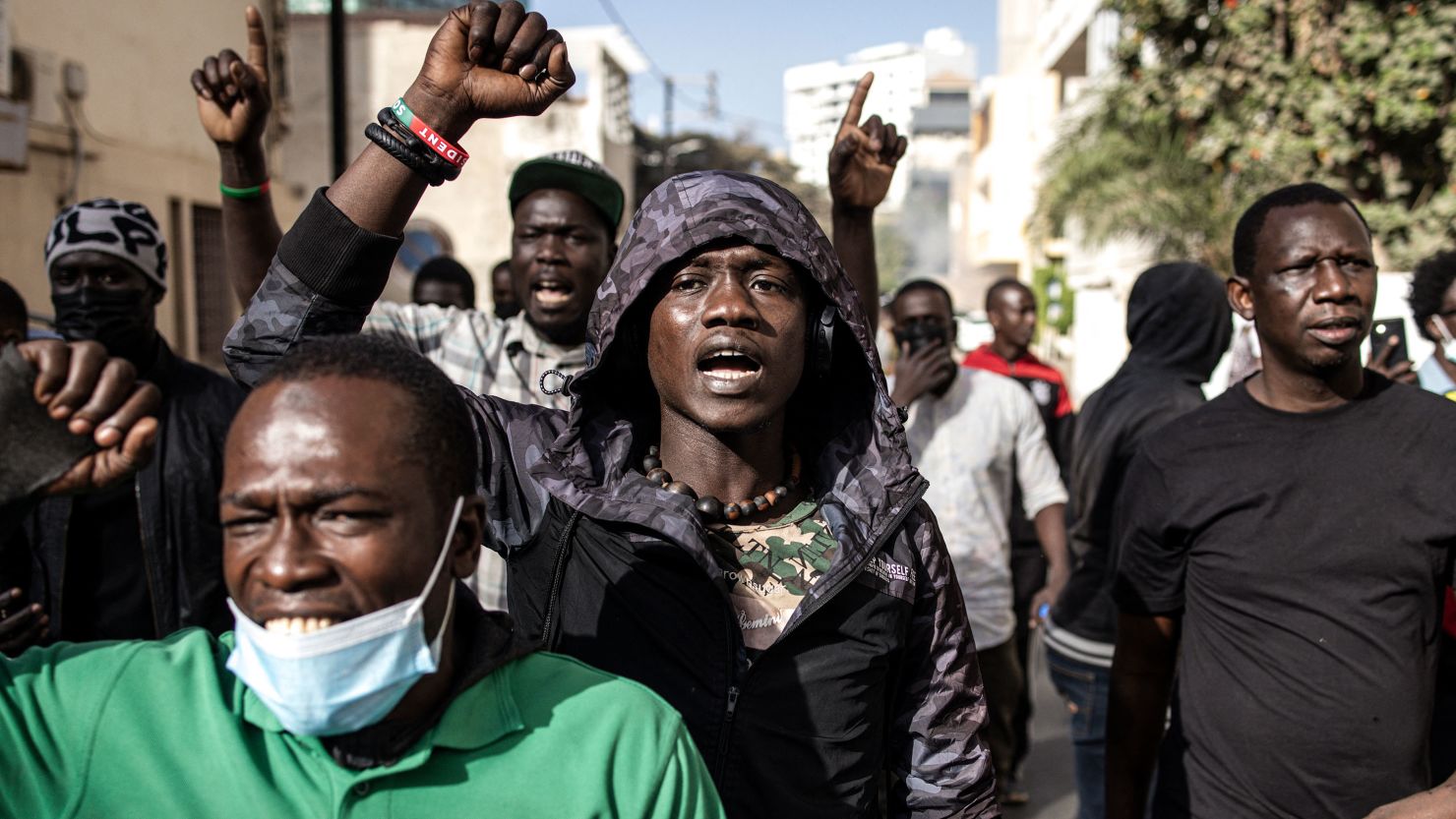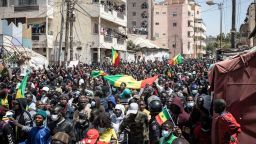A political crisis is looming in Senegal after presidential polls due to be held this month were postponed, triggering protests and a mobile internet shutdown in the country.
The news of the election delay, which came as official campaigning for the February 25 elections was due to start, sparked widespread anger in the West African country.
Opposition politicians took to the streets with their supporters on Sunday and clashed with police, who dispersed the crowd with tear gas, according to local media reports.
Macky Sall, whose second and final term runs out in April, announced Saturday that the vote would not hold as planned, citing disputes over a final list of presidential candidates that excluded dozens of opposition aspirants.

Angry youths burned tires and one protester told reporters: “We are only defending ourselves. He (Sall) meddles with the constitution, he meddles with the newspapers, he meddles with the population. He does everything he can to put us in a difficult position… We are not fighting for a simple cause, we are fighting for freedom.”
Mobile internet services were also “provisionally suspended,” the country’s communications ministry said in a written communique Monday citing the need to stop “the spreading of several hateful and subversive messages on social media in a context of threats of disturbances to public order.”
Tense political climate
Sunday’s protests have exacerbated an already tense political climate, where critics have accused Sall of cracking down on the opposition and failing to tackle unemployment.
The Economic Community of West African States (ECOWAS) and the African Union both expressed concern over Sall’s postponement of the vote and urged Senegalese authorities “to organize the elections as soon as possible.”
A spokesman for the UN Secretary-General, Stephane Dujarric, said the organization was “following very closely the situation in Senegal.”
“For the Secretary-General it’s very important that all stakeholders uphold a peaceful environment and refrain from violence and any action that can undermine the democratic process and stability in Senegal.”
He added that stakeholders should “speedily resolve differences through consensus and especially in line with Senegal’s longstanding tradition of democratic governance.”

Sall announced on television that he planned to have a national discussion to set clear fair rules for the upcoming election. He expressed concerns over how the candidate list was compiled and postponed the vote to allow an inquiry into how the candidates were approved.
The candidate list was released last month by the country’s Constitutional Council, an institution that oversees election matters. The list included incumbent Prime Minister Amadou Ba, who was handpicked by Sall as his potential successor as well as former Prime Minister Idrissa Seck.
The list excluded prominent opposition leader Ousmane Sonko, who enjoys widespread support among Senegalese youth, and Karim Wade, son of former president Abdoulaye Wade.
Wade, who was disqualified by the council for holding dual citizenship, had complained he was unfairly excluded saying he had renounced his French citizenship in October last year.
He and his party are among those calling for a delay in the polls to allow for an investigation that will restore his candidacy.
Sonko’s PASTEF Party, however, criticized the postponement of the election, describing it as “a serious threat” to Senegal’s democracy. Sonko was barred from the polls after the Senegalese Supreme Court upheld his conviction over a defamation case.
Last year, Sall dispelled rumors that he planned to run again for office after his silence on the matter triggered deadly protests in the country.
CNN’s Richard Roth contributed to this report.



